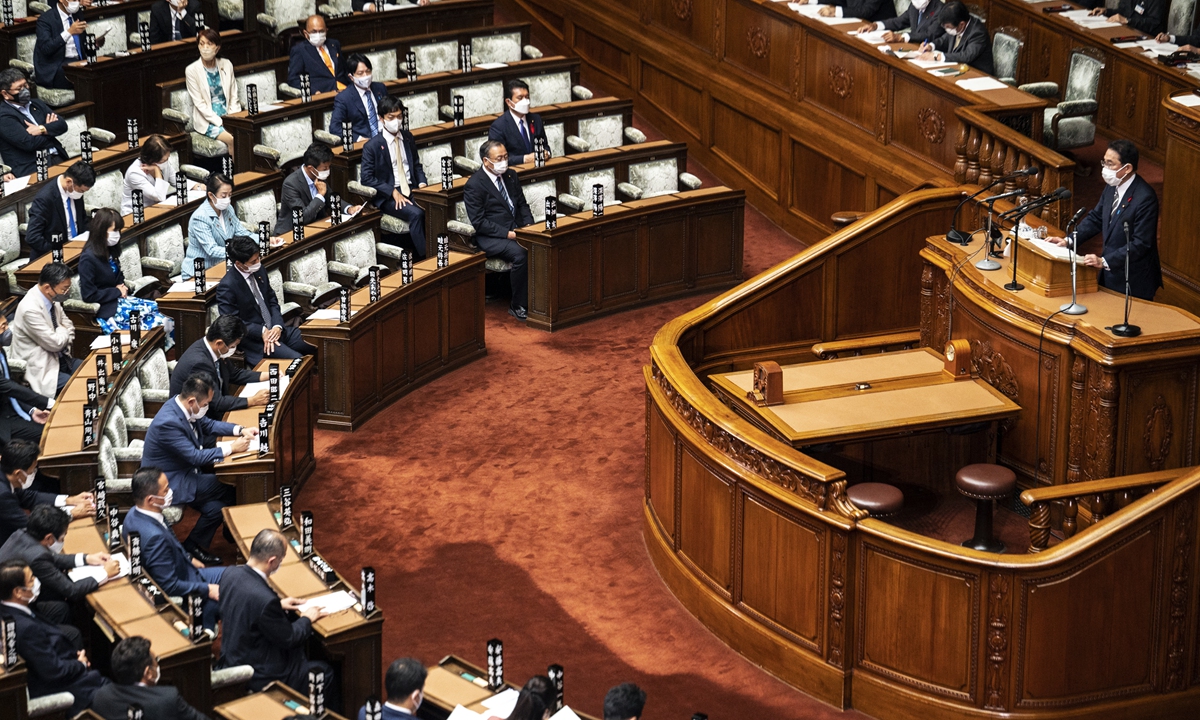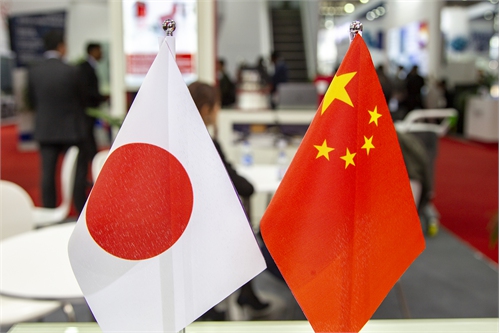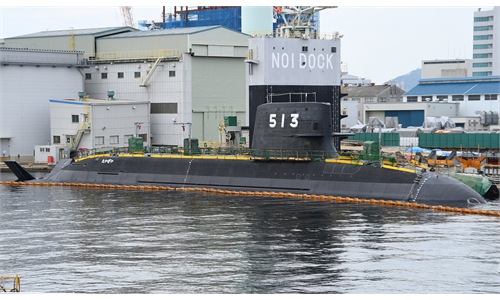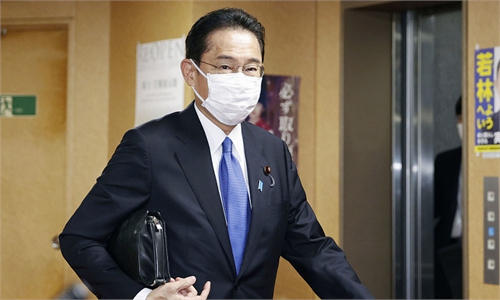
Japan's new Prime Minister Fumio Kishida delivers his first policy speech in Tokyo. Kishida said a stable bilateral relationship with China is important for the region and the world.Photo:AFP
Japan is reportedly considering revising its National Security Strategy at the end of 2022, and Chinese observers believe the new version is very likely to include Taiwan question and Diaoyu Islands issues, while highlighting the need to strengthen the US-Japan alliance, and stronger cooperation with other "Quad" members.
Citing sources, Japan Times reported on Sunday that the revised strategy will call for enhancing economic security amid "China's increasing assertiveness," and the focus is on whether the proposed acquisition of capabilities to strike enemy bases will be included in the new document.
Japan's military role has become the focus as tensions in the Taiwan Straits rise.
Sankei News reported Sunday that the Japanese government is also simulating an emergency response to big changes in the island of Taiwan in case the emergency affects Japan. The report noted that it seems necessary to strengthen the protection of Japanese residents on the island of Taiwan.
If Taiwan reaches an emergency and the US sends troops, Japan is likely to provide intelligence information, logistics and military bases to assist the US, but will not send troops, said Liu Jiangyong, vice dean of the Institute of Modern International Relations at Tsinghua University. The excuse Japan can use for doing so is that the turmoil across the Straits has affected the freedom of shipping and hindered the flow of oil, which would have a huge impact on Japan, Liu told the Global Times on Monday.
Chinese observers believe that in order to prepare for such an emergency and expand its military, Japan is likely to amend the strategy at the end of 2022. This would be one of the typical signals of Japan's possible military expansion that China and other Asian countries should be on high alert for, they stressed.
A recent survey by the Mainichi Shimbun showed that 77 percent of those elected to the House of Representatives in October 31's general poll are in favor of revising Japan's constitution, and an over the two-thirds majority necessary to initiate a constitutional amendment in the chamber.
Japan is trying to lift a ban on self-defense and expand bilateral and multilateral cooperation with Europe and the US in response to geopolitical security concerns, Da Zhigang, director and research fellow at the Institute of Northeast Asian Studies of the Heilongjiang Provincial Academy of Social Sciences and chief expert at the Northeast Asian Strategic Studies Institute, told the Global Times on Monday.
After amending the strategy, the country is likely to further revise its defense program to increase the country's defense budget and strengthen its military, Liu said.
Liu said the country would only burden itself with the cost of military expansion and national security concerns, and worsen its national security environment by revising the document.
If Kishida's ruling party wins big in the 2022 Upper House elections, the first constitutional amendment becomes possible, Liu said, noting that Article 9 of the constitution may not be revised immediately but that the amendments would leave the door open to a possible revision of Article 9.
Japan would then reach a crossroads between "carrying huge national security costs, but worsening the national security environment," and "following the path of peaceful development," Liu said.
"For Japan, going further [in military expansion] is a fall into the abyss," Liu warned.

Japan's new Prime Minister Fumio Kishida delivers his first policy speech in Tokyo. Kishida said a stable bilateral relationship with China is important for the region and the world.Photo:AFP
Japan is reportedly considering revising its National Security Strategy at the end of 2022, and Chinese observers believe the new version is very likely to include Taiwan question and Diaoyu Islands issues, while highlighting the need to strengthen the US-Japan alliance, and stronger cooperation with other "Quad" members.
Citing sources, Japan Times reported on Sunday that the revised strategy will call for enhancing economic security amid "China's increasing assertiveness," and the focus is on whether the proposed acquisition of capabilities to strike enemy bases will be included in the new document.
Japan's military role has become the focus as tensions in the Taiwan Straits rise.
Sankei News reported Sunday that the Japanese government is also simulating an emergency response to big changes in the island of Taiwan in case the emergency affects Japan. The report noted that it seems necessary to strengthen the protection of Japanese residents on the island of Taiwan.
If Taiwan reaches an emergency and the US sends troops, Japan is likely to provide intelligence information, logistics and military bases to assist the US, but will not send troops, said Liu Jiangyong, vice dean of the Institute of Modern International Relations at Tsinghua University. The excuse Japan can use for doing so is that the turmoil across the Straits has affected the freedom of shipping and hindered the flow of oil, which would have a huge impact on Japan, Liu told the Global Times on Monday.
Chinese observers believe that in order to prepare for such an emergency and expand its military, Japan is likely to amend the strategy at the end of 2022. This would be one of the typical signals of Japan's possible military expansion that China and other Asian countries should be on high alert for, they stressed.
A recent survey by the Mainichi Shimbun showed that 77 percent of those elected to the House of Representatives in October 31's general poll are in favor of revising Japan's constitution, and an over the two-thirds majority necessary to initiate a constitutional amendment in the chamber.
Japan is trying to lift a ban on self-defense and expand bilateral and multilateral cooperation with Europe and the US in response to geopolitical security concerns, Da Zhigang, director and research fellow at the Institute of Northeast Asian Studies of the Heilongjiang Provincial Academy of Social Sciences and chief expert at the Northeast Asian Strategic Studies Institute, told the Global Times on Monday.
After amending the strategy, the country is likely to further revise its defense program to increase the country's defense budget and strengthen its military, Liu said.
Liu said the country would only burden itself with the cost of military expansion and national security concerns, and worsen its national security environment by revising the document.
If Kishida's ruling party wins big in the 2022 Upper House elections, the first constitutional amendment becomes possible, Liu said, noting that Article 9 of the constitution may not be revised immediately but that the amendments would leave the door open to a possible revision of Article 9.
Japan would then reach a crossroads between "carrying huge national security costs, but worsening the national security environment," and "following the path of peaceful development," Liu said.
"For Japan, going further [in military expansion] is a fall into the abyss," Liu warned.




